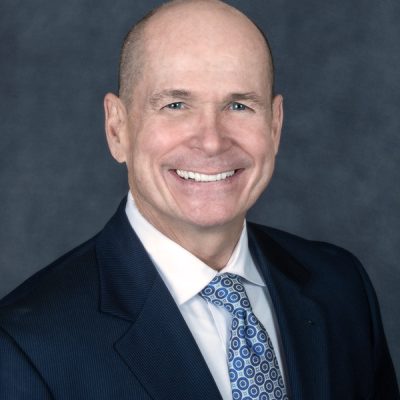Orlando Motorcycle Accident Lawyer
Motorcycling is a popular and enjoyable activity in Florida, but it also comes with inherent risks. Motorcycle accidents can cause serious injuries to the head, neck, spine, chest, abdomen, arms, legs, and skin. Sadly, these serious injuries often result in death.
Most Common Motorcycle Accident Injuries
Head and Neck Injuries
Head and neck injuries are among the most severe and life-threatening injuries that motorcycle riders can suffer. They can result from direct impact with the ground, another vehicle, or an object, or the sudden acceleration and deceleration of the head and neck during a crash. Head and neck injuries can include:
- Traumatic brain injury (TBI): This is a type of brain damage that occurs when the brain is violently shaken or penetrated by a foreign object. TBI can cause cognitive, behavioral, emotional, and physical impairments, such as memory loss, confusion, mood swings, headaches, seizures, paralysis, and coma.
- Whiplash: This is a neck injury that occurs when the head and neck are forcefully whipped back and forth. Whiplash can cause neck pain, stiffness, reduced range of motion, dizziness, blurred vision, and nerve damage.
- Spinal cord injury (SCI): This is a type of injury that damages the spinal cord, which is the bundle of nerves that connects the brain to the rest of the body. SCI can cause partial or complete loss of sensation and movement below the level of the injury, as well as bladder, bowel, and sexual dysfunction.
Chest and Abdominal Injuries
Chest and abdominal injuries are also common and serious injuries that motorcycle riders can sustain. They can result from blunt force trauma, penetrating trauma, or compression trauma to the chest or abdomen. Chest and abdominal injuries can include:
- Broken ribs: This is a type of fracture that occurs when one or more of the ribs crack or break. Broken ribs can cause chest pain, difficulty breathing, coughing up blood, and internal bleeding.
- Organ damage: This is a type of injury that affects one or more of the vital organs in the chest or abdomen, such as the heart, lungs, liver, spleen, kidneys, or pancreas. Organ damage can cause bleeding, infection, inflammation, and organ failure.
- Internal bleeding: This is a type of bleeding that occurs inside the body, usually as a result of organ damage or broken blood vessels. Internal bleeding can cause shock, low blood pressure, rapid heart rate, and death.
Arm and Leg Injuries
Arm and leg injuries are the most common types of injuries that motorcycle riders suffer. They can result from direct contact with the ground, another vehicle, or an object, or from being crushed or twisted during a crash. Arm and leg injuries can include:
- Road rash: This is a type of skin injury that occurs when the skin is scraped or torn by the friction of sliding on the road. Road rash can cause pain, bleeding, infection, and scarring.
- Biker’s arm: This is a type of nerve injury that occurs when the arm is compressed or stretched during a fall. Biker’s arm can cause numbness, tingling, weakness, or paralysis of the arm.
- Foot and leg injuries: These are types of injuries that affect the bones, muscles, tendons, ligaments, or nerves of the foot or leg. Foot and leg injuries can include sprains, strains, fractures, dislocations, amputations, and compartment syndrome.
Essential Motorcycle Safety Precautions
The best way to protect your health while riding a motorcycle is to:
- Always wear a helmet, even if you are exempt from the law.
- Wear protective gear, such as a leather jacket, gloves, pants, and boots.
- Ride defensively and be aware of your surroundings.
- Take a motorcycle safety course.
- Obey traffic laws and avoid speeding, reckless driving, and alcohol impairment.
Motorcycle Safety in Florida
Florida motorcycle riders should be aware of the following state-specific laws and regulations:
- Helmet law: Florida is one of the few states with no universal helmet law. However, helmets are required for all riders under 21 and for anyone with a learner’s permit. Riders over 21 are exempt from wearing a helmet if they carry at least $10,000 in medical benefits.
- Lane splitting: Lane splitting is illegal in Florida. This means motorcycles are not permitted to drive between lanes of moving or stopped traffic.
- No-fault state: Florida is not a no-fault state for motorcycle accidents. This means riders can sue the at-fault party for their injuries and damages, regardless of their own fault. However, Florida follows a comparative negligence system. Historically this meant that any compensation awarded will be reduced proportionally to the rider’s own percentage of fault in the accident. However, recent changes in Florida law prevent the plaintiff from recovering compensation when they themselves are found to be greater than 50% at fault.
Motorcycle Accident Lawyer Near Me
If you or a loved one has been injured in a motorcycle accident, turn to Orlando personal injury attorney Todd Miner for dedicated legal guidance. With over 30 years of experience, and as a lifelong motorcycle rider himself, Todd understands the difficulties motorcycle accident victims face and has the skills and resources to handle your case.
As former insurance company lawyers, we know how to secure maximum compensation by beating the insurers at their own game. At Todd Miner Law you pay no fees unless we win while benefiting from personal service and attention focused on getting you the justice and financial compensation you deserve. Don’t wait, contact us today for a free consultation and case evaluation – you can reach us today online or by calling 407-955-5640.
Additional Resources
- Florida Department of Highway Safety and Motor Vehicles: Motorcycle Rider Education & Endorsements https://www.flhsmv.gov/driver-licenses-id-cards/motorcycle-rider-education-endorsements/
- Florida Statutes – Motor Vehicles: Equipment for motorcycle and moped riders http://www.leg.state.fl.us/statutes/index.cfm?App_mode=Display_Statute&URL=0300-0399/0316/Sections/0316.211.html








